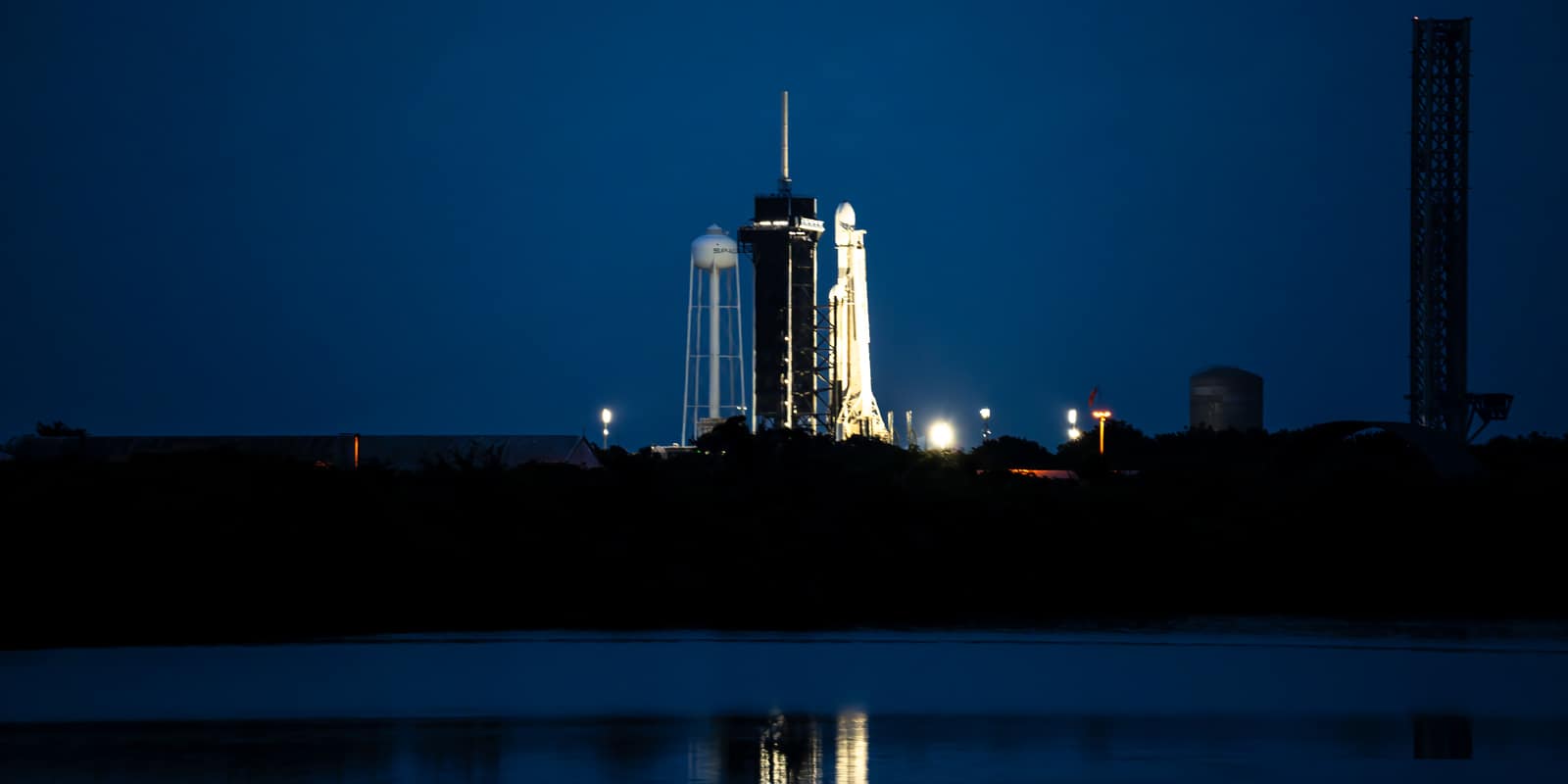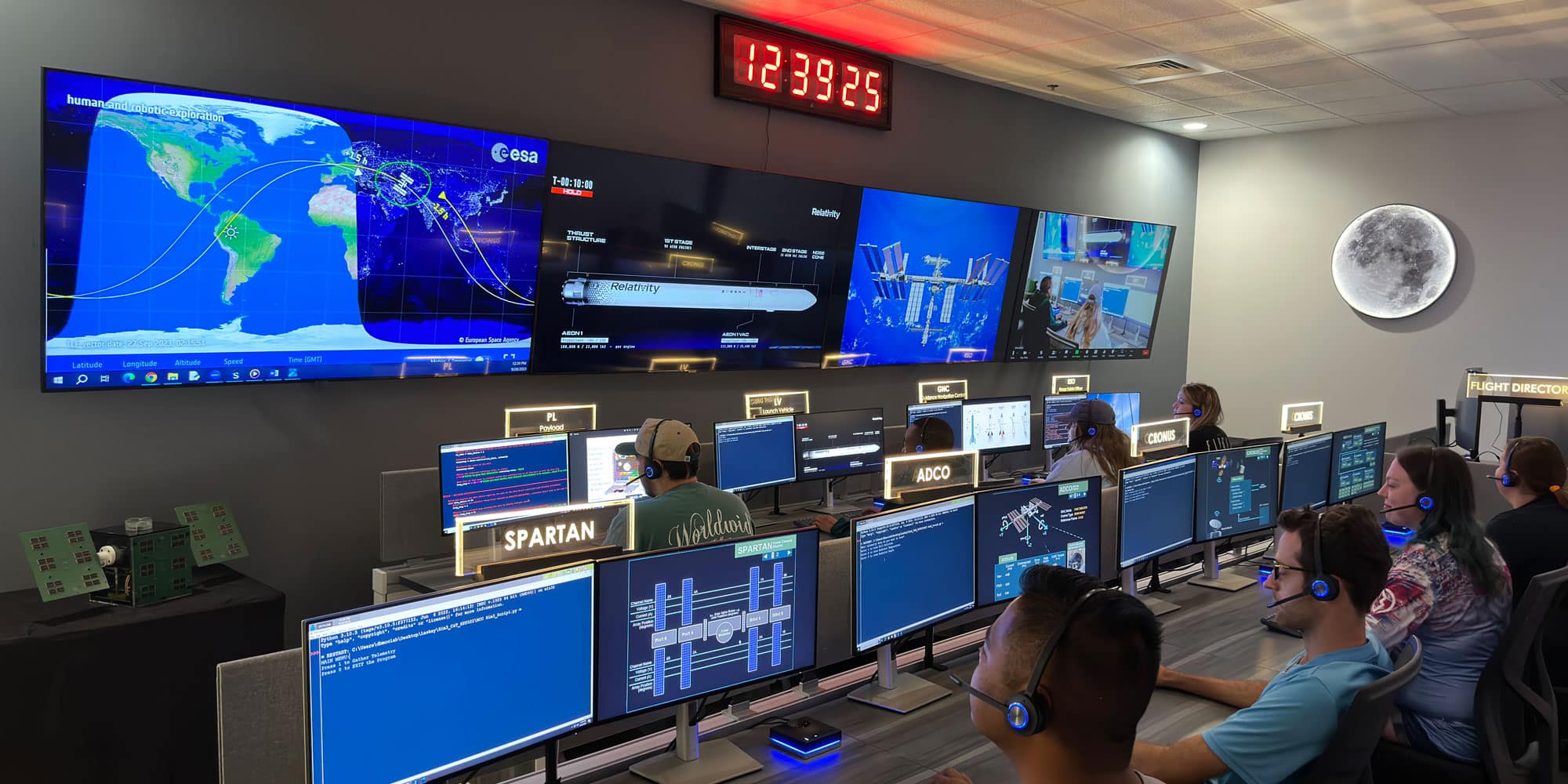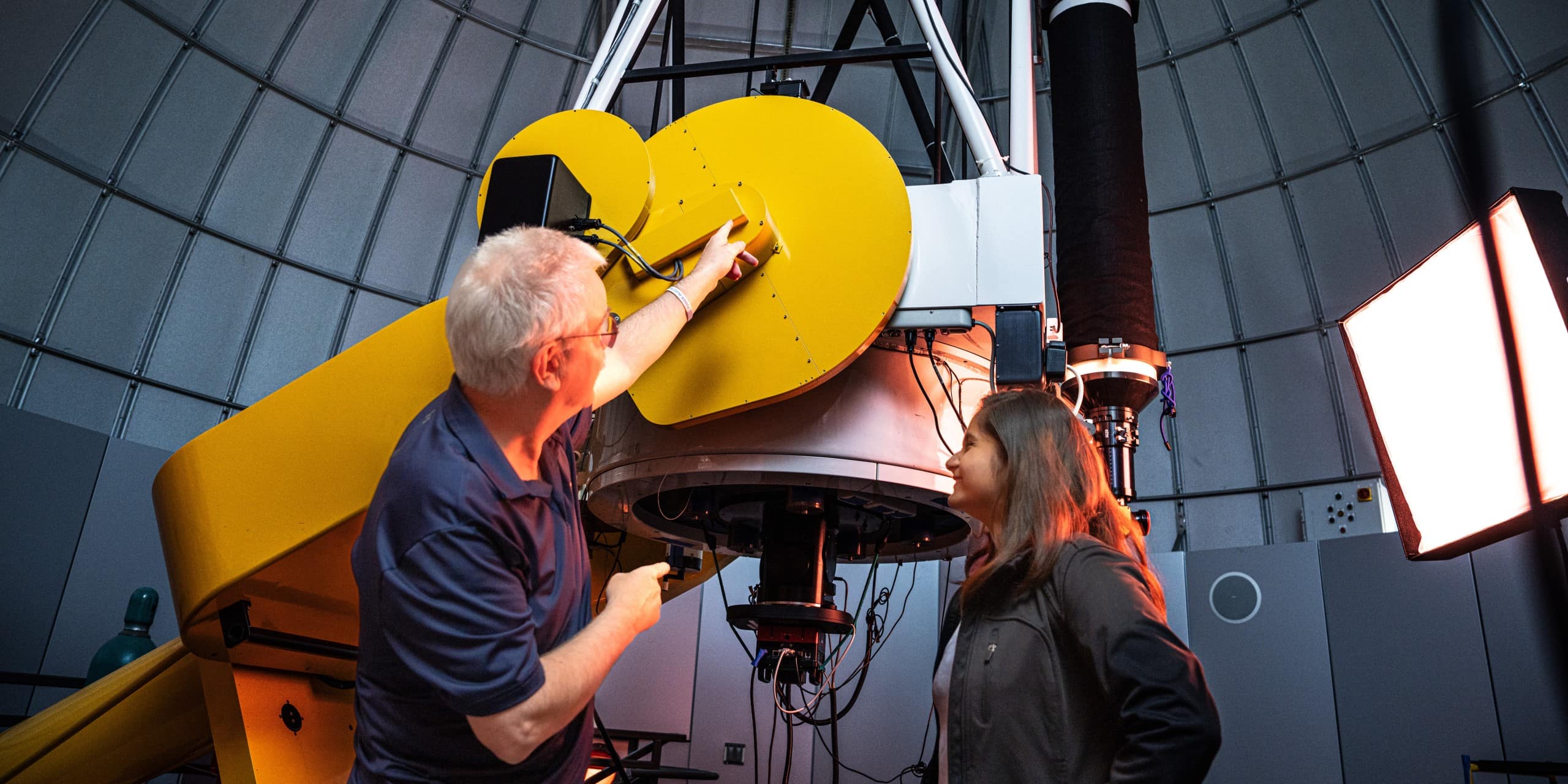
Master of Science in
Space Systems
The Master of Science in Space Systems is designed to provide students with the tools they need to be successful program managers of major space systems.
About the Master of Science in Space Systems
The space industry is experiencing explosive growth, mainly stemming from the commercialization and privatization of the launch and supply missions to the International Space Station (ISS), the desire to return to the moon and exploration of Mars within the foreseeable future.
The Master of Science in Space Systems is designed to support aspiring technical-oriented students with the tools and knowledge they need to be successful program managers. This degree centered on Space Systems provides a balanced and multidisciplinary curriculum rooted in establishing programmatic awareness, technical judgment and leadership.
The program is for students who aspire to excel in the science, practice and business of the space industry, ensuring our graduates are not only market-ready but also pioneers of the future.
Student Learning Outcomes
While earning an online space industry degree, you will have the opportunity to explore critical areas, including:
- Designing a range of space systems using systems engineering principles.
- Creating strategies for developing space systems that optimally achieve mission, financial and organizational goals.
- Synthesizing strategic critical thinking skills to determine tradeoffs based on sound technical and business judgment.
- Analyzing the technical characteristics and performance parameters of current and future systems and components in the context of a space system.
Space Systems Career Opportunities
Careers and Employers
Master’s students graduating from Embry-Riddle’s Space Systems program transition into careers with companies such as SpaceX, NASA, the U.S. Space Force, Blue Origin, United Launch Alliance and the European Space Agency.
Graduates with a Space Systems degree tend to enter the industry with positions as principal systems engineers, technical strategists, technical managers and advanced systems developers.
Space Systems Salary Information
As of 2023, graduates with a Space Systems degree tend to receive competitive salaries, with an income range of $119,000 annually.
DETAILS
About Space Systems at the Worldwide & Online Campus
The College of Aviation prepares students for productive careers and leadership roles in the aerospace industry.
Embry-Riddle's Master of Science in Space Systems provides a focused education for students aspiring to be technical program managers, honing in on advances in technology, automation and structural materials.
Pursuing a degree at the Worldwide & Online Campus allows graduate students to structure their education around their lifestyles, taking classes where and when they want.
Space Systems Information
- Credits: 30
- Online or In-Person: Fully Online
Helpful Links
- Attend a Worldwide Virtual Info Session
- Discover the Department's Faculty
- Explore the Fields of Study: Aviation & Space
- Find Related Clubs & Organizations
Student Learning Outcomes
Students will:
- Design a range of space systems using systems engineering principles.
- Create strategies for developing space systems which optimally achieve mission, financial and organizational goals.
- Synthesize strategic critical thinking skills to effectively determine tradeoffs based on sound technical and business judgement.
- Analyze the technical characteristics and performance parameters of current and future systems and components in the context of a space system.
DEGREE REQUIREMENTS
Core/Major
| SPAC 500 | Overview of the Space Ecosystem | 3 |
| SPAC 520 | Principles of Space Systems | 3 |
| SPAC 525 | Space Law and Policy | 3 |
| SYSE 500 | Fundamentals of Systems Engineering | 3 |
| MSSS 550 | Space Transportation Systems | 3 |
| MSSS 530 | Earth Observation Systems | 3 |
| MSSS 560 | SATCOM Systems | 3 |
| MSSS 570 | Space Science Systems | 3 |
| SPAC 515 | Cybersecurity Applications in Space | 3 |
| MSSS 540 | Human Spaceflight Systems | 3 |
| Total Credits | 30 | |
Get Started Now:
Summary
30 Credits
Estimate your tuition by using the Tuition Calculator
View Financial Aid Information
Learn more about the benefits of an Online Degree
Learn about our General Education
Find out about transferring credits to this degree
Learn more about our Veterans & Military benefits
View our Academic Calendar
Search Courses for this degree




